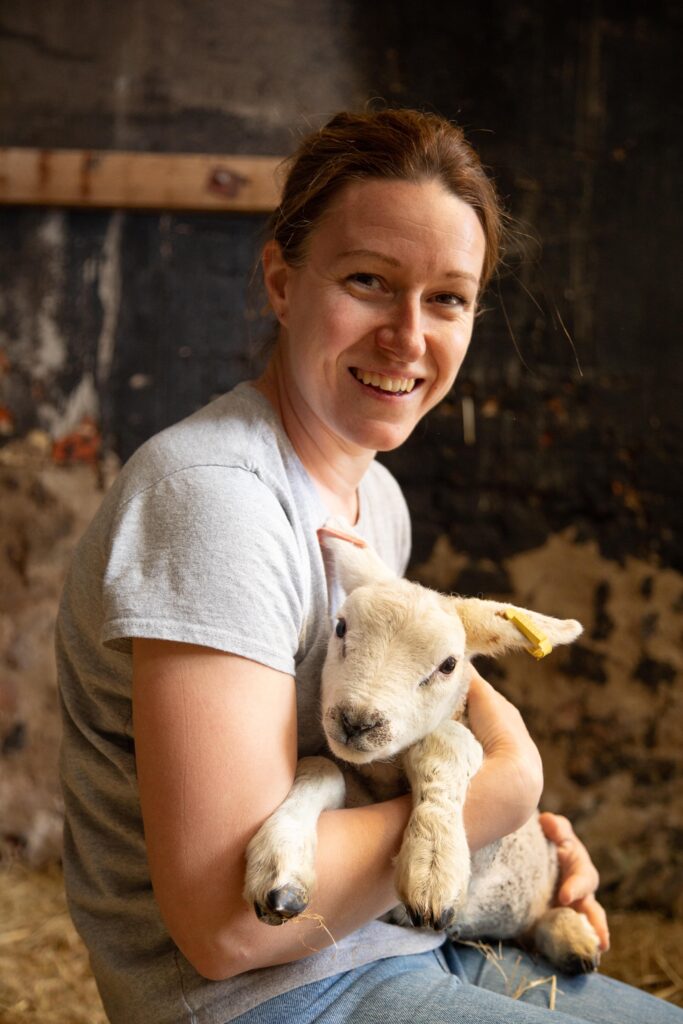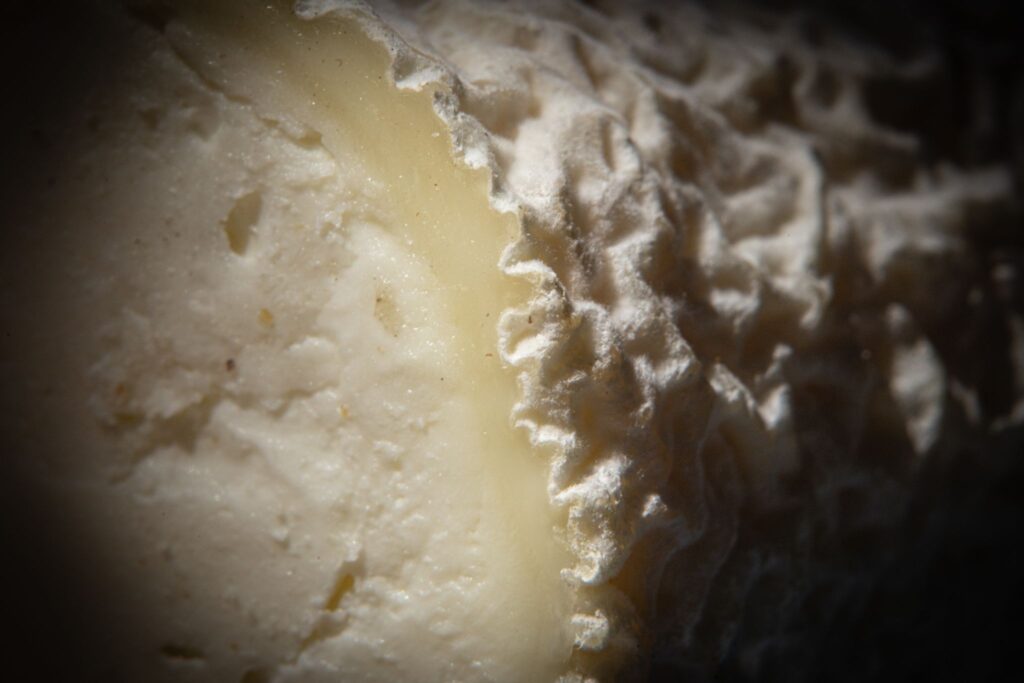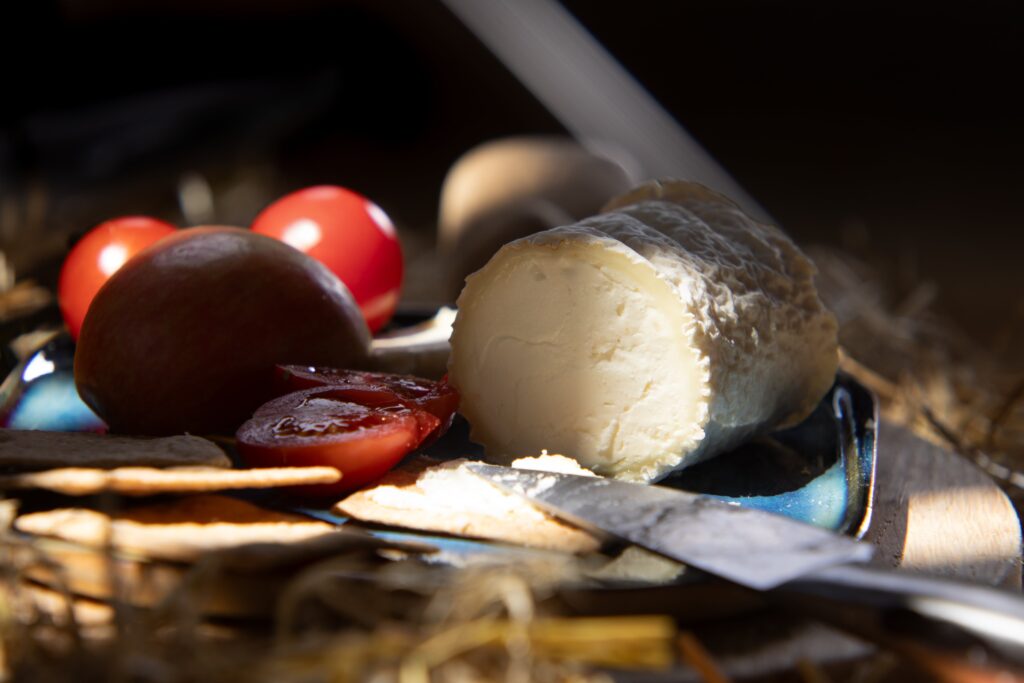


The cheeses are then left again for a further twenty-four hours or so, being turned a couple of times before being unmoulded and salted by hand and placed into the maturation rooms where they will wait patiently, being turned daily, the moulds slowly forming over the period of about a week.
At this point, the cheese is ready to eat and is young, fruity and fresh, although it develops a deeper, more savoury flavour as it ages and softens, the texture breaking down from chalky to fudgy as time goes on and the distinctive rind forming more acutely. In our view, the ideal time to enjoy Pyghtle is from about three weeks old when the flavours are complex and delicious!